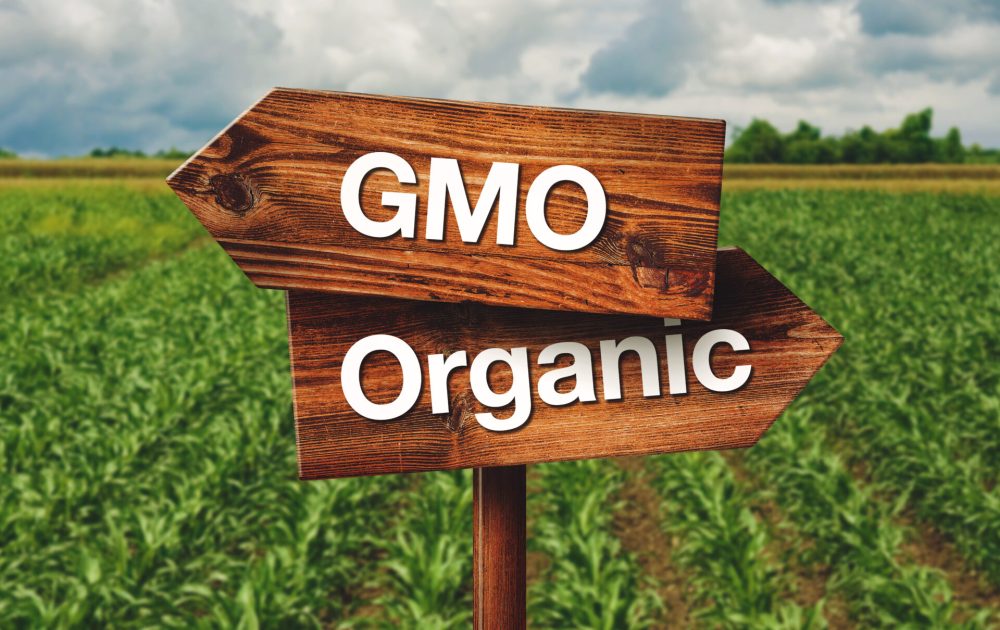Our test tells you which everyday chemicals you've recently come into contact with, and easy steps you can follow to reduce your exposure to them.
Genetically modified (GM) food

GM food is an example of a GMO, a term used to describe a genetically modified organism where its gene pattern has been modified or engineered, either by adding or taking away genes to make it develop differently. Crops can be genetically modified to be resistant to pesticides and herbicides such as glyphosate. GM crops can be sprayed with herbicides or pesticides without damaging them, whilst killing weeds or insects surrounding them to improve crop yields. These are known as GM foods.
Is GM food considered healthy?
There is not much scientific consensus yet, but some have voiced serious concerns about the safety of GM foods, fearing there may be unintended outcomes. For example, plants could potentially create unknown toxins and allergens to protect themselves from pests during the process of genetic modification, with unknown effects on human, animal, and insect health. GM crops sprayed with glyphosate have raised serious health concerns including increases in cancer rates and other serious illnesses.
How common are GM foods in the UK?
The most common types of GM food are soybean products and animal feeds imported from outside the UK, where they can enter the food chain via meats and dairy produce. Food containing GM ingredients sold in the UK must be approved, registered and clearly labelled for consumers.
It’s estimated that 80% of the world’s crops are genetically modified to tolerate pesticides and herbicides. GM crops are not grown in the UK due to legal restrictions, although this may change. The Genetic Technology (Precision Breeding) Act was passed in March 2023 which relaxed the regulations on Genetically Modified Organisms (GMOs). The new act permits field trials of gene edited crops for the first time providing they are registered and approved, in England only. The number of approved genetically modified (GM) foods is relatively small with 4.8% of global agricultural patents held in Europe, but there is concern from leading scientists that the new legislation could be the thin end of the wedge for food safety.
What to look out for if you are concerned about GM foods
- Check labels on food products
- The only way to avoid GM entirely is to choose organic ingredients.
- Choose organic soybean products.
- Buy locally sourced food where possible. The regulations vary for GM crops between countries, so check the source of ingredients.
Further reading
Food Standards Agency guidance on GM foods.
Research on glyphosate damage to gut bacteria
European legislation on pesticides (the UK currently follows)
Evidence that pesticide manufacturers have failed to disclose developmental neurotoxicity